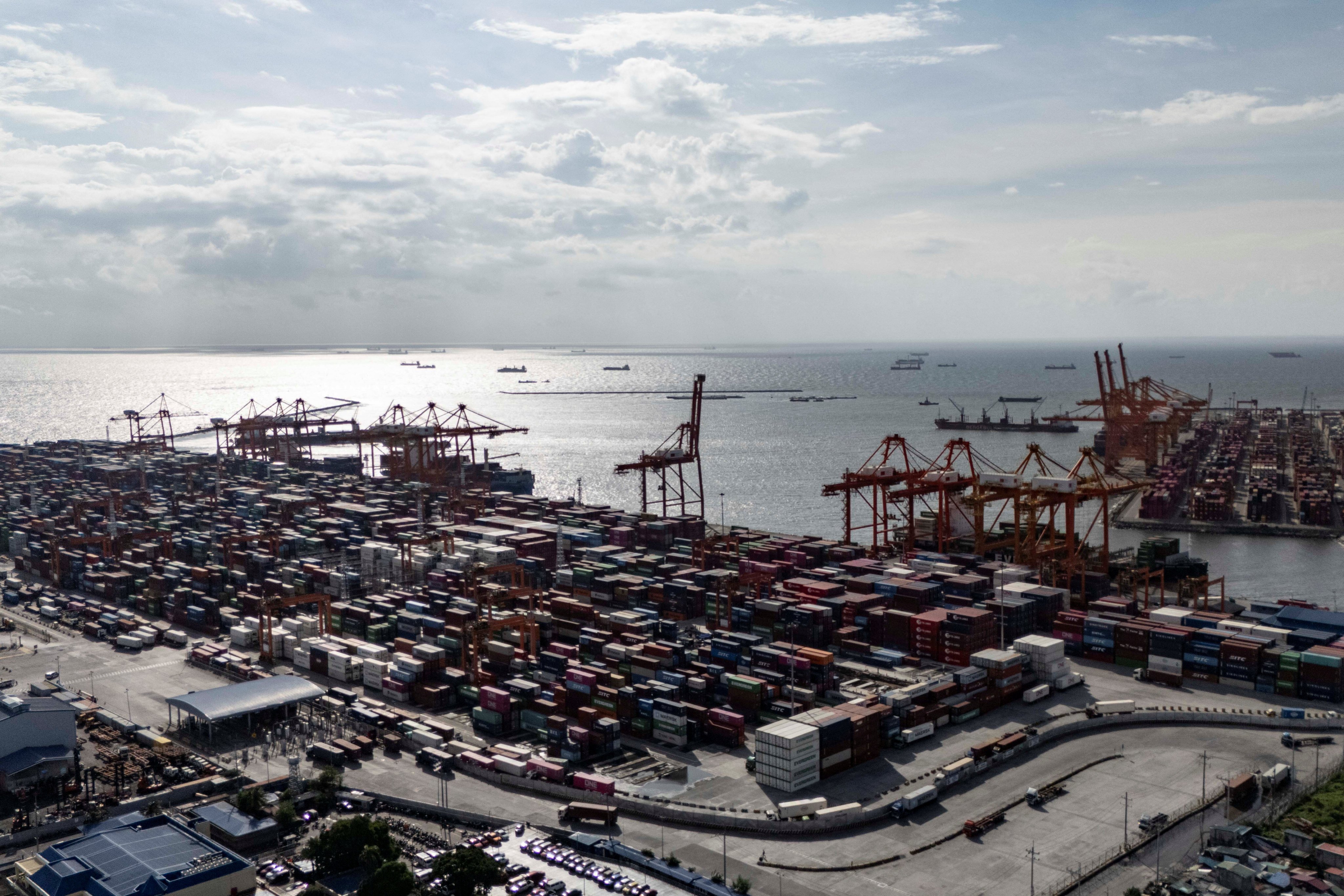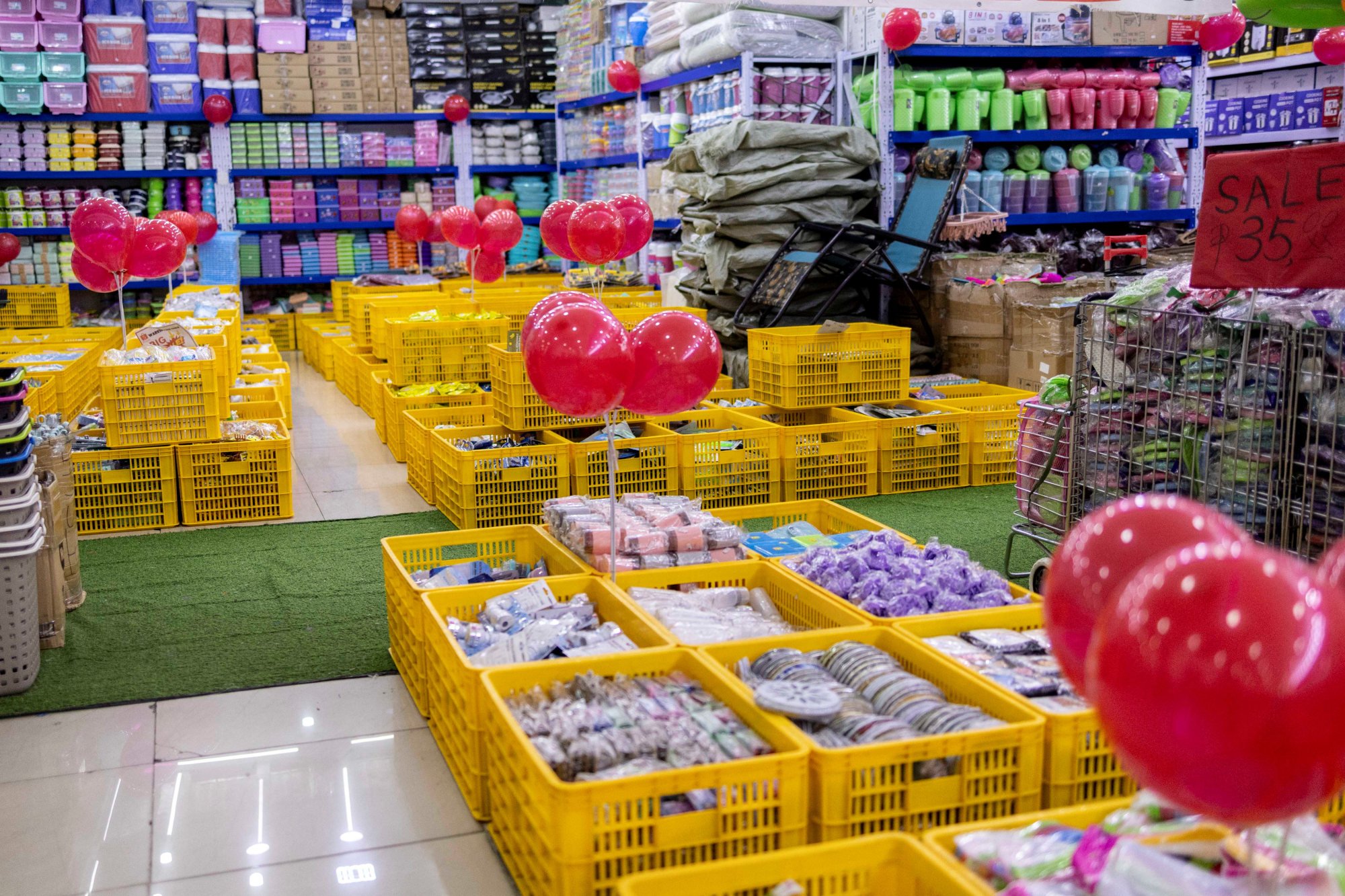Philippines urged to ‘double down’ in talks over 20% tariff with Trump
Trump says the tariff on Philippine exports to the US is necessary to address what he calls Washington’s ‘unsustainable’ trade deficit

The move by US President Donald Trump to impose a higher-than-expected tariff on the Philippines signals his unwavering determination to pressure Washington’s trade partners to do their part in reducing the US deficit in tandem with its intensifying rivalry with China, according to analysts.
Trump announced on Wednesday that the tariff on Philippine exports to the US would be 20 per cent, above the 17 per cent that he had previously threatened to impose.
He said Washington’s trade partners were engaging in unfair trade practices, leading to “unsustainable” deficits that he claimed were threatening US national security. Washington has said that these trade partners are enjoying lopsided access to the US while growing their economic ties with China.
The Philippines was among seven nations targeted in the latest round of tariff notices issued by Washington on Wednesday, alongside Algeria, Brunei, Iraq, Libya, Moldova and Sri Lanka.
“Our relationship has, unfortunately, been far from reciprocal,” Trump wrote in a letter addressed to the Philippine government.
“Tariffs are necessary to correct the many years of the Philippines’ tariff and non-tariff policies and trade barriers, causing these unsustainable trade deficits against the United States.”
He added: “This deficit is a major threat to our economy, and indeed, our national security!”
Philippine ambassador to the US Jose Manuel Romualdez confirmed that Manila was planning to negotiate with Washington, with Philippine officials scheduled to travel to the US next week for discussions before the tariff’s August 1 effective date.
Trade reciprocity isn’t just about tariffs.Ruben Carlo Asuncion, Union Bank of the Philippines
Trade between the US and the Philippines totalled about US$23.5 billion in 2024, according to the Office of the United States Trade Representative (USTR).
US exports to the Philippines were US$9.3 billion, while its imports from the Philippines totalled US$14.2 billion last year. The US$4.9 billion trade deficit recorded by the US was a 21.8 per cent rise from the previous year.
Ruben Carlo Asuncion, chief economist of the Union Bank of the Philippines, said that the trade deficit was “not among the largest” and was unlikely to pose a threat to US national security.
He called Philippine exports “modest compared to [the US’] trade volumes with China or the EU”.
“Trade reciprocity isn’t just about tariffs. It includes market access, investment rules, labour standards, and more. The Philippines has opened many sectors to US firms and maintains relatively low tariffs on US goods,” Asuncion said.
The China factor
Trump’s view of deficits as a threat to national security indicated that trade “isn’t just an economic matter, it’s also a geopolitical instrument”, Enrico Gloria, an assistant professor of political science at the University of the Philippines and a doctoral student at Tsinghua University in Beijing, told This Week in Asia.
Unhandled type: inline-plus-widget {“type”:”inline-plus-widget”}
“By framing the Philippines’ trade surplus as a threat, Trump is signalling that countries benefiting from US market access, especially those seen as transshipment hubs for Chinese goods, are undermining American dominance … the Philippines, while an ally, may be indirectly helping China circumvent tariffs, capitalising on favourable ties with the US,” he said.
In February, the US exempted the Philippines from its blanket freeze on foreign aid, granting US$336 million for the country’s defence modernisation efforts. US Secretary of State Marco Rubio said in January that every dollar spent by Washington should “make America safer, stronger, and more prosperous”.
Trump’s invocation of national security goes beyond military threats and also takes into account the economic domain, according to Gloria.
“He’s securitising trade itself, arguing that unequal trade relationships erode America’s global position. His tariff letters repeatedly stress the idea of ‘America being No 1’, underscoring a belief that sustaining US economic primacy is a national security priority,” he told This Week in Asia.
The tariff increase was part of a broader strategy to isolate China by pressuring Washington’s economic partners, “even long-standing allies like the Philippines, to choose sides”, Gloria added.
Asuncion said the trade deficit between the US and the Philippines was “not unusually large or dangerous” and “the relationship is more balanced than what is portrayed”.
Michael Ricafort, chief economist of the Rizal Commercial Banking Corporation, said the higher tariff was not a surprise given similar moves announced by Trump for Japan and South Korea a few days earlier.
The 20 per cent tariff would have a limited impact on the Philippines’ economy as it was less reliant on exports to the US and other markets for its growth compared with its Asean neighbours, Ricafort added.
“Philippine merchandise exports are three to five times lower compared with major Asean countries on a yearly basis. However, slower world economic growth due to Trump’s higher tariffs and other protectionist measures could indirectly weigh on the Philippine economy,” he told This Week in Asia.
“Let us see if Trump would be willing to compromise and settle for lower negotiated tariffs during the trade talks, given the TACO track record in recent months,” in reference to the widely shared “Trump Always Chickens Out” acronym on social media of the US leader’s pattern of threatening and reneging on his tariff threats.

Tough talks ahead
During its tariff negotiation, the Philippines should “double down” and emphasise the long-term strategic relations with the US, Asuncion said. “The Philippines should highlight its compliance with international trade norms and the strategic value of its relations,” he added.
Describing the new tariff “a wake-up call”, Chester Cabalza, founder and president of the International Development Security Cooperation think tank in Manila, said the Philippines should be firm during its talks with the US.
For instance, Manila should demand that Washington spend more for the upkeep of military sites that American forces could operate from in the Philippines under the Enhanced Defence Cooperation Agreement, Cabalza added.
In the broader scheme of things, the US still values the Philippines as an integral part of its grand strategy in the Indo-Pacific, according to Cabalza.
“They know that once they miss this golden opportunity to cooperate with Manila, China will fill in the vacuum,” he said.
Gloria said ultimately, the “unequal returns” that Trump was seeking to redress should be seen as a trade quid pro quo in exchange for his commitment on the defence front to help the Philippines counter China’s maritime aggression.
“The message is: if the US is investing in your security, especially to counter China, then it’s only fair that you address what he considers unfair trade practices,” he added.
“In Trump’s logic, this military support is part of a larger ‘deal’ – and now it’s time for the Philippines to give something back.”